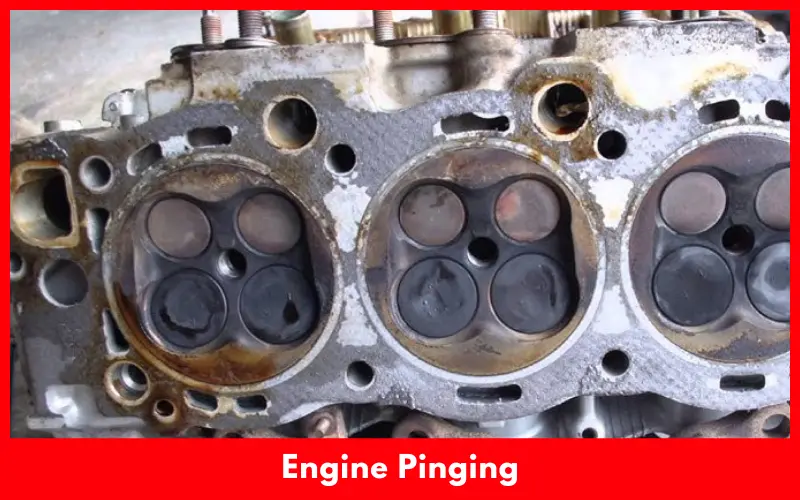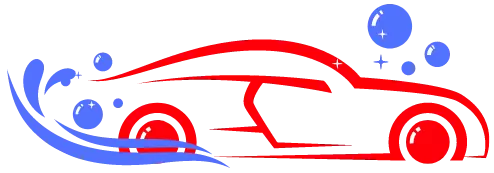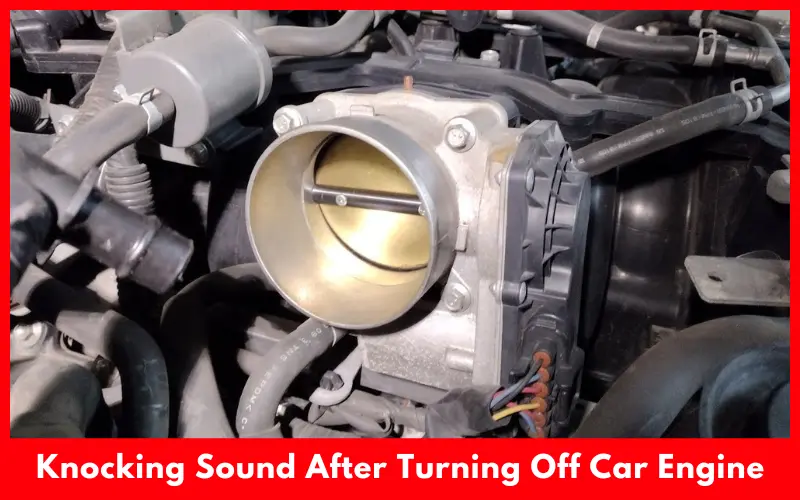In the case of cars, the unknown sounds may throw us into a tailspin with ever increasing woes. Interests of drivers might be driven out when a strange knocking sound after turning off car engine.
Recognizing the probable reasons behind the noise will calm down the prior fears and help to avoid future problems with the car. I explained the reasons why your vehicle may produce a knocking sound after turning off engine, and I would be glad to share with you what you can do to fix this.
Article Summary
Reasons For Knocking Sound After Turning Off Car Engine
A knocking sound after turning off the car engine could indicate a few different issues, depending on the nature of the sound and when it occurs:
Engine Pinging
Rattling noise called the pinging, or detonation, happens when the air-fuel mix ignites ahead of schedule and does so in the combustion chamber. That is to say, the problem can be driven by causes like bad fuel, misadjusted ignition timing or engine overheating.

What is noticed sometimes as the ignition material is still burning after the engine is being turned off are those quick successive knocking sounds.
Cooling System Adjustments
When the engine is off, the cooling system too, does keep running while it is working in order to make sure that the heat that had accumulated during the operation is relieved. When the heat goes away from the engine, different metal pieces, like the engine block and the exhaust system, shrink, so there is a rattle or tapping sound.
This is something routine that sometimes happens during the cooling phase and does not call for an appropriate alarm at all.
Loose Heat Shields
Heat shields in the vicinity of exhaust systems are usually used to temper the high temperatures that the components experience. Through overuse, the shields might become loose or even disfigured, causing the engine to rattle or knock once it is turned off.
Performing an examination on and perhaps just tightening or replacing loose heat shields can greatly reduce or eliminate this source of noise altogether.
Exhaust System
Comprising exhaust system parts like the exhaust pipe and muffler, they adapt to the heating and cooling combination. Remember that the expansion and contraction that occurs during the thermal cycling can sometimes result in knocking and tapping sounds, more commonly because the engine has been turned off.
The same is true for an exhaust system that is largely quiet especially on smooth surfaces but which becomes noisy when it hits rougher roads.
Suspension Or Drivetrain Issues
A period after the engine is turned off might result in knock sounds as well and it could be linked to the suspension or drivetrain components being faulty and wearing off. Faulty o parts or parts that fit improperly may change their position slightly hence produce audible as the vehicle is coming to a stop. Looking at the suspension and drivetrain carefully and spotting in and dealing with the underlying problems can help.
How To Fix Knocking Sound After Turning Off Car Engine?
Identifying the cause of an engine knock after turning off the car engine is specific when determining the correct repair for the noise problem. Here are some steps you can take to address common causes:
Use Higher-Octane Fuel
If a low-octane fuel is causing engine pinging, then it would require using a higher-octane fuel to make sure that knocking is not premature. Besides that, the inaccurate timings of the ignitions can also cause pinging.

A good employee has a proper sense of timing, a quality embedded in good mechanics. Therefore, check your vehicle’s manual or a mechanic to ensure the ignition timing is set correctly.
Cooling System Adjustments
Allow time for cooling: Occasionally, the found sound is just a matter of what happens when metal components contract when they cool off. If you wait till the engine stops as much as possible by shutting it off only at the end of its complete cooling, the noise can then be lower or even be eliminated.
Inspect cooling system: Make sure that the specifics of the cooling system are functioning properly, i.e. no leaks and check if there are any blockages. Coolant works when level is correct and circulation takes place. These ensure proper cooling.
Tighten Or Replace Heat Shields
Check the shields around the heat sources from the exhaust system and fasten the loose or damaged panels. In some instances replacement may be the option if the screens have reached a level of repair that cannot be reestablished.
Secure Exhaust Components
Observe the exhaust system for leaks, loopholes, or damaged components that could be the possible cause of the knocking sound. Rebuild or replace any parts when necessary. Verify that no exhaust component is riding or hitting any other part of the vehicle.
Inspect Suspension Components
Inspect worn or damaged suspension components, e.g., bushings, control arms, and replace the stabilizer bars. When there is a knocking noise, the part that is worn should be replaced in order to prevent such a sound. Visually check the parts of the drivetrain that make up the CV joints, axle shafts and the transmission mount for any signs of wear or breakage. ‘Swap’ any worn out parts that produce knocking sounds.
FAQs on Knocking Sound After Turning Off Car Engine
Is A Knocking Sound After Turning Off The Engine Normal?
Sometimes, after the ignition is switched off, a slight knocking noise can be heard as well, as it is often caused by cooling and exhaust cycling of certain components, such as coolant system and exhaust components. Yet, much like a regular symptom of a disease that stays longer than usual, prolonged or non-stop knocking can hint for deeper problems.
How Can I Determine The Source Of The Knocking Sound in My Car?
An important step towards figuring out the origin of the knocking sound is the act of listening attentively to when and where it occurs. If the sound is the engine running itself or sometimes right after the engine is off, it is likely due to over fuelling or as a result of an adjustment of the cooling system.
In this case, if the noisy sound is louder when the vehicle is below, it may be related to the exhaust system, a suspension component or an electronic part of the transmission.
Can I Fix A Knocking Sound After Turning Off The Engine Myself?
The fact that you can eliminate a coughing sound by yourself with manually turning off the engine in the middle of the road depends on the root cause of the noise and on whether you are capable of doing such a thing. For instance, a situation where a heat shield is loose can be addressed by just tightening it or securing it using handy equipment that can be done by simply being DIY.
Nevertheless, when it comes to more complicated troubleshooting, such as engine pinging or suspension issues, we should rely on mechanics who are authorized to give us a correct diagnosis and solve the problem professionally.
When Should I Seek Professional Help For A Knocking Sound in My Car?
If during your own efforts you cannot trace the mysterious rapping sound to its cause or the noise continues to grow with time beyond your expectations, then you should seek the expertise of a professional. A professional mechanic experienced enough will use an extensive diagnosis procedure on your vehicle in order to find the source of the knocking sound accurately and then he will recommend the required repairs for the sound to go off. By acting fast, you won’t be pushed towards the further damage of your car, and you will be able to drive without any extraneous noise.
Final Words
Although a kind tapping after deactivating the engine is probably a cause of concern, it’s rarely a serious thing. Gaining insight into the possible reasons of that noise, you can predict whether it is a part of routine performance of your car or should be inspected more closely.
If you’re not sure about the being, and also, the noise proceeds, then it is better to pick an experienced mechanic, who will be able to check the small to large problems and will recommend the right treatment, of course. By paying attention and putting in some routine maintenance from you, your car can keep running with ease and you are able to drive with confidence on the road.

